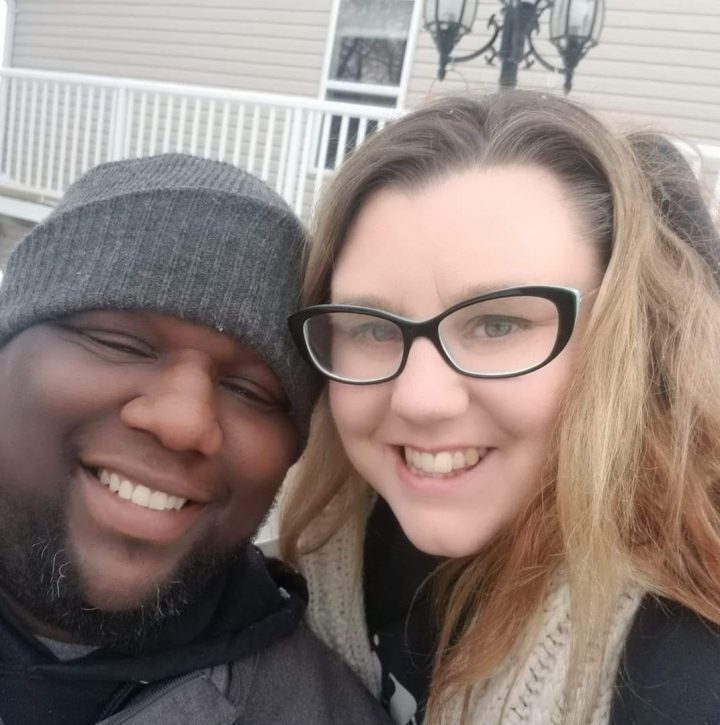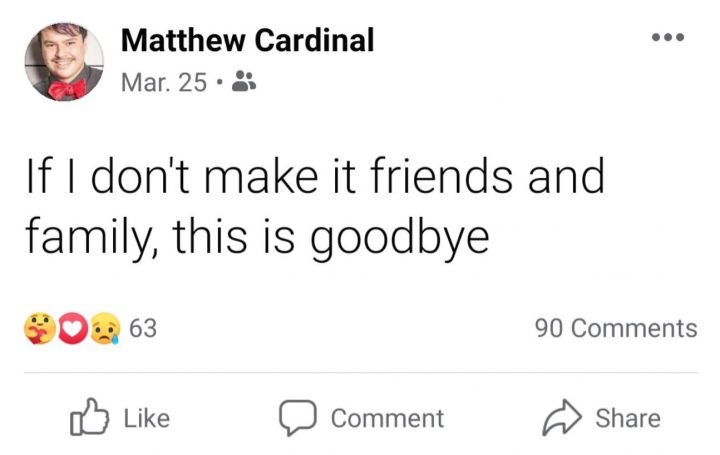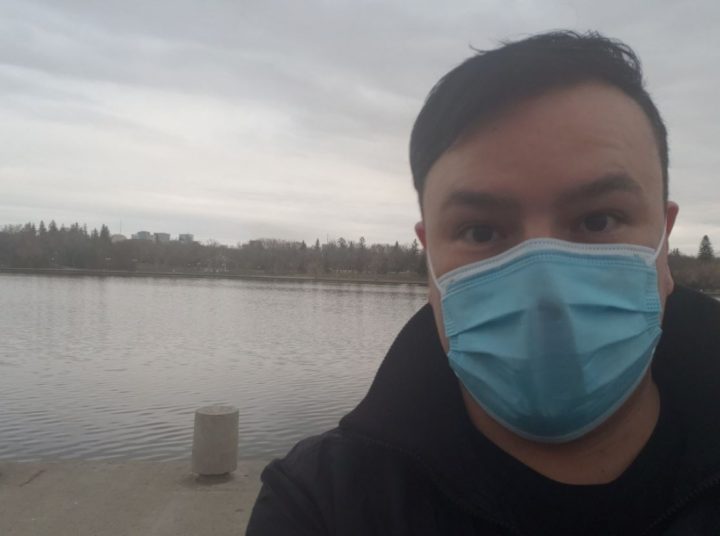In mid-April, Regina logged 35 COVID-19 patients in its ICUs at one time — a record high during the coronavirus pandemic.

Saskatchewan doctors and health-care workers continue to warn about the strain being put on human resources and the toll it is taking on front-line workers.
Global News spoke with both a widow who lost her husband to the virus and a 34-year-old COVID-19 survivor.
While two very different outcomes, both paint a bleak picture of being inside the intensive care unit at Regina’s General Hospital.
“The ICU was a nightmare,” Roshelle Montgomery said. “I’ve never seen anything like that.
“A nightmare with angels working in it is the only way I can explain it.”
Roshelle’s husband, Warren Montgomery, was a culinary staple in Regina as the owner of The Big Easy Kitchen.
After he contracted the virus, the 42-year-old was admitted to the Regina General Hospital’s COVID-19 unit on April 13.
“I was crying when he was leaving (the house) and the paramedic assured me, ‘Ma’am, he’s OK … We just want to get him checked out, but he’s OK. He’s going to be OK,’” Roshelle said.
That fear became reality in the hospital. Roshelle had also tested positive for COVID-19 and was forced to isolate at home, which meant she couldn’t visit her husband.
“He had anxiety being there,” Roshelle said. “The more anxious he got, the harder it was (for him) to breathe.”
Four days after arriving in hospital, Warren’s condition worsened.
His last night in the COVID-19 unit, he began coughing, Roshelle said, so much so that he couldn’t catch his breath.
“He panicked and he pulled his oxygen out of his nose and they couldn’t settle him,” she said. “That’s when they had to sedate him and take him to the ICU to be put on a ventilator.”

At first, Roshelle said they tried to remain positive, “praying for a miracle.”
But his health continued to decline, and eventually, Warren suffered a stroke.

Get weekly health news
A CT scan showed significant damage to the left side of his brain.
“Even if he recovered from COVID, he would be in a home for the rest of his life with a feeding tube, hooked up to machines forever,” Roshelle said.
“We decided as a family that’s not what Warren would have wanted.”
Roshelle said she made the difficult phone call to Warren’s family in the United States, letting them know they would be taking him off life support the following afternoon.
But Warren didn’t make it that long.
“I got a phone call at about five in the morning from the nurse asking if I was planning to come and I said I had planned to be there early afternoon,” Roshelle said.
“They said he’s not going to make it that long, you need to come in now.”
Roshelle called Warren’s family before heading to the hospital. She said they were all able to call or FaceTime with him to say goodbye virtually.
Once Roshelle arrived at Regina General, she suited up in full PPE and sat with Warren.
“I sat with him while he was on the ventilator for a little bit, then they started to turn the machines down and they eventually took out all of the tubes and his vent,” she said. “It was only a matter of minutes and he was gone. It was just like he went to sleep. He was peaceful and it was quiet.”
‘On my death bed’
Matthew Cardinal, 34, is a server in Regina. He believes he contracted the coronavirus at work.
“I’ve never been that sick before,” Cardinal told Global News.
Cardinal, who doesn’t smoke and typically logs 12,000 steps a day, said he doesn’t understand how the virus hit him so hard.
After being admitted to Regina General Hospital, Cardinal was wheeled into the ICU on March 25.
That day, before transferring units, he posted on Facebook: “If I don’t make it friends and family, this is goodbye.”
Cardinal said he was intubated, hooked up to a ventilator and placed in a medically-induced coma.
“I was literally waiting for my time to die in there,” he said. “It was frightening.”
Cardinal, who is still recovering from COVID brain fog, said he remembers more and more about his ICU experience as time passes.
“They would bring me in and out of the coma just to check up on me,” he said.
“When I realized everything was coming out of my body, I would start panicking and they’d have to sedate me again.”
That panic was often coupled with confusion, he said, and often times he didn’t know what day it was when he woke up.
“You didn’t know how long you’d been in there for, you don’t know what they did to you. I’d be looking around making sure I had all my limbs on.”

Cardinal, who describes himself as fairly level-headed, referred to his time in the ICU as “overwhelming” and “traumatic.”
It was an experience, he said, made even harder by seeing other people his age sick with COVID in there.
“Being in there, I felt like I was on my death bed,” he said. “I tried to remain so positive and calm about everything, but it’s so hard.”
Cardinal said laying in that bed gave him a lot of time to reflect, often thinking about his family and friends, and the regrets he had.
“I don’t hug enough. I don’t reach out enough,” he said. “I started making up a checklist in my mind of what I wanted to do (when I got out of hospital).”
On March 31, Cardinal was taken off the ventilator. He said he couldn’t speak and was very weak, but he managed to update his loved ones on Facebook, posting: “Alive.”
He is now out of hospital recovering at home. He said he still feels the impact of the virus and his hands are shaky as a result.
But he remains adamant the virus won’t beat him.
Cardinal is weaning himself off of the oxygen tank and managing to walk around Wascana Lake – slowly getting back to his 12,000 steps a day.
















Comments
Want to discuss? Please read our Commenting Policy first.